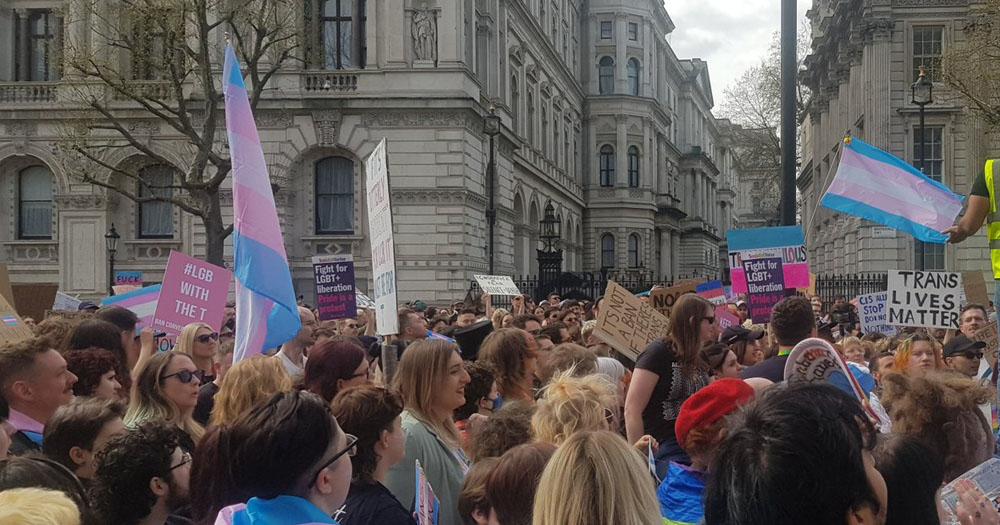On January 9, the UK Government announced that they are considering taking actions that would “impose unprecedented restrictions” on the rights of trans people in the country.
On Monday, UK Minister for Women and Equalities Kemi Badenoch notified the Chamber of the potential restrictions that the conservative government is considering to impose on trans people’s rights, which would come in two forms. Firstly, Minister Badenoch spoke of a revision of their policies regarding gender recognition certificates presented by people coming from other countries.
The government is set to narrow the list of countries from which gender recognition certificates are automatically recognised by British authorities, which would lead the UK to stop recognising certificates from at least 14 countries, including Canada, New Zealand and Australia. Ireland is already not included in such list because of its gender recognition process based on self-declaration introduced in 2015.
Badenoch explained that such revision would apply to the countries where the legislation on legal gender recognition is not aligned with the Gender Recognition Act, passed in the UK in 2004. Under such law, in order to have their preferred gender recognised on legal documents, a person must provide a medical diagnosis of gender dysphoria and other evidence to a panel of doctors and lawyers.
https://twitter.com/nxfie/status/1613108290635841539?s=20&t=-a7KOhdfYiEA1jPeyq7JZQ
Badenoch told the Chamber that some countries had changed their legislation on gender recognition since the list was last updated in 2011 and that the inclusion of such countries on the list “would damage the integrity and credibility of the process of the Gender Recognition Act”.
Moreover, the government is also considering taking action to block the gender recognition reforms introduced in Scotland in December. By passing the landmark Gender Recognition Reform bill, Scotland removed the gender dysphoria medical diagnosis requirement from their process and allowed trans people to change the gender markers on their ID documents by simply completing a declaration form.
The UK government is now examining the impact of the Scottish law on the UK-wide equality legislation and might consider the implementation of order Section 35, which would effectively block the bill.
1/ ? Statement from Nancy Kelley, Chief Executive, and Colin Macfarlane, Director of Nations at Stonewall in response to reports that the UK Government will attempt to block the implementation of Scotland's Gender Recognition Reform Bill. (1/8)
— Stonewall (@stonewalluk) January 8, 2023
LGBTQ+ charity Stonewall published a statement after such plans were announced, deeming them “a disgraceful low for the UK government’s approach to LGBTQ+ rights” and saying that this “sends a message that the UK government sees trans people as a threat to be contained, not citizens to be respected.”
The statement continued saying, “These moves cut against the inclusive values that characterise modern Britain and will actively harm the UK’s international reputation as an open, diverse and dynamic society — one of the reasons why global corporations that proudly support LGBTQ+ rights are attracted to doing business in the UK. They will have significant political consequences in the UK and internationally.”
© 2023 GCN (Gay Community News). All rights reserved.
Support GCN
GCN is a free, vital resource for Ireland’s LGBTQ+ community since 1988.
GCN is a trading name of National LGBT Federation CLG, a registered charity - Charity Number: 20034580.
GCN relies on the generous support of the community and allies to sustain the crucial work that we do. Producing GCN is costly, and, in an industry which has been hugely impacted by rising costs, we need your support to help sustain and grow this vital resource.
Supporting GCN for as little as €1.99 per month will help us continue our work as Ireland’s free, independent LGBTQ+ media.

comments. Please sign in to comment.